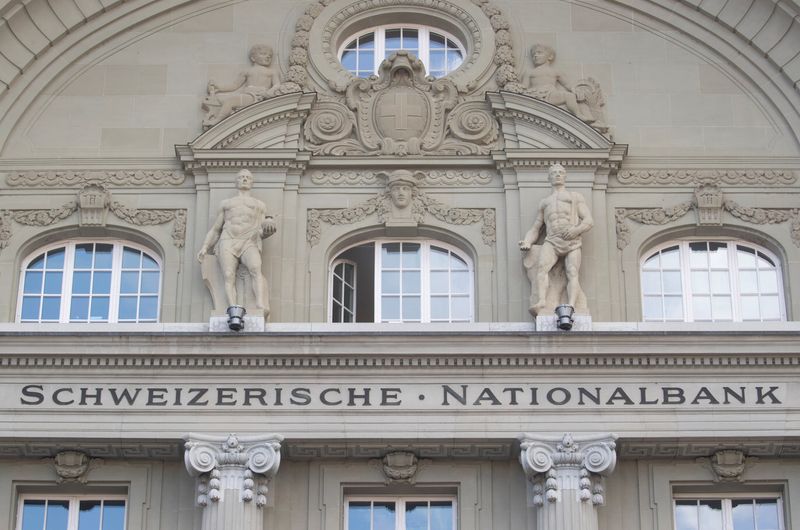ZURICH(Reuters) - The Swiss National Bank's foreign exchange reserves rose in October, central bank data showed on Monday, as the Swiss franc's depreciation helped reverse a sharp drop in September.
The SNB held 817.16 billion Swiss francs ($821.27 billion) in foreign currencies at the end of October, compared with 806.11 billion francs in September, revised from an originally reported 807.13 billion francs.
The SNB declined to comment on the change.
Market participants have been watching the data for possible indications that the central bank is selling some of its dollars and euros to keep a lid on inflation by supporting the Swiss franc's appreciation this year.
The cheaper franc could mean that reserves rose despite a possible intervention in the currency market.
"It's quite possible that the SNB has been selling some of its foreign currencies to strengthen the Swiss franc," said Credit Suisse economist Maxime Botteron, who estimates the SNB had sold 3.4 billion francs of foreign currencies in September.
"Having a strong franc is a useful tool against inflation, and combating inflation is the SNB's number 1 task," Botteron said before the data was published.
Imported prices contributed around 1.7 percentage points to the Swiss inflation rate of 3% in October, while 1.3 percentage points came from domestic price rises.
UBS economist Alessandro Bee, however, said it was hard to read the forex reserves data because it mixed two effects - the SNB buying or selling FX reserves and valuation effects.
Every month the value of the SNB's reserves is adjusted to reflect currency translation effects, and every quarter they are also recalibrated to reflect the market value of the stocks and bonds the central bank has bought.

"I don't think the SNB is selling FX reserves in a huge amount to underpin the Swiss franc," Bee said. "FX interventions on both sides seems to me an instrument they only deploy when they are really concerned about the economy or the inflation."
($1 = 0.9950 Swiss francs)